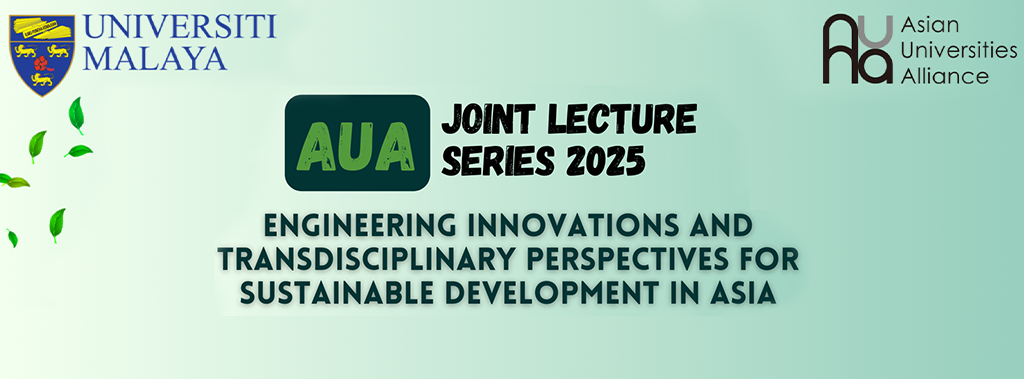AUA Lecture
Series 2024
The theme of this year’s AUA Joint Online Lecture Series is “Engineering Innovations and Transdisciplinary Perspectives for Sustainable Development in Asia.”The 2025 JLS will explore how engineering can drive sustainable development while embracing transdisciplinary collaboration to address complex, interconnected challenges in Asia. In today’s rapidly evolving world, engineering innovations are pivotal in tackling social, economic, and environmental issues. Yet achieving impactful, sustainable change requires diverse disciplines to work hand in hand. Through this lecture series, renowned experts from AUA member universities will share their experiences, research, and practical knowledge on a broad range of sustainable development topics.

